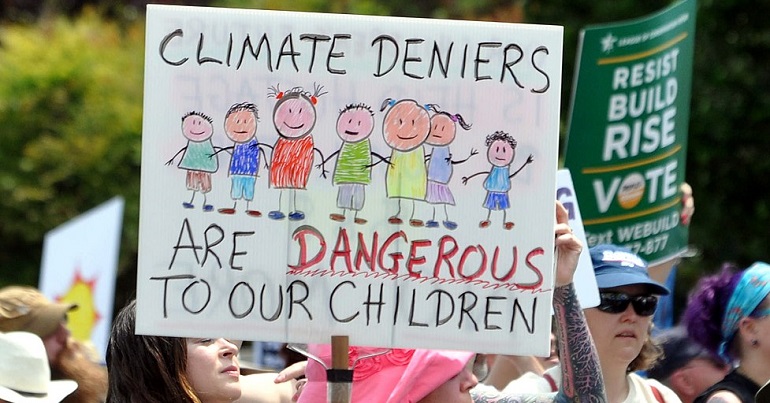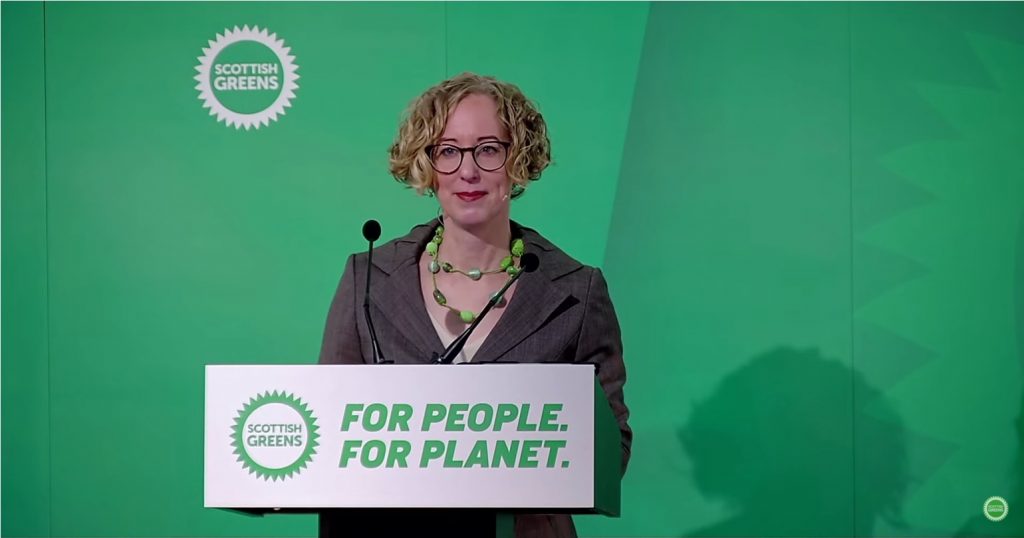Why we need to stop framing tackling climate change as a battle for our children
I wish I was given a penny every time someone started talking about saving the planet for our grandkids. I may actually have enough income to start my own Green New Deal if that was the case. But sadly not.
Passing the planet on
For many, particularly those with their own kids, children provide the inspiration behind their climate action. We expect with every generation to leave the world in a better place when we pass, in the hope that our kids enjoy it. Climate change with its society disrupting capabilities reflects a disruption to that optimism. Thus, the passion and advocacy that comes from many with children is inspiring.
A great recent example of this politics of parenthood is Mary Robinson’s Climate Justice. A veteran international politician, and an effective advocate for climate action, her writing is full of references to how children and grandchildren inspired Robinson’s mission. The book amplifies the voice of many usually side-lined as well. In particular it focuses on the stories of women affected by and fighting against climate change.
This intersection of feminism and environmentalism is extremely important. It highlights how climate change impacts are felt on gendered lines, and how climate activist spaces remain patriarchal. On all accounts it represents a great introduction to the issue of climate justice. But there remains a problem with the narrative of gifting the planet to one’s children; those it excludes.
Politics of parenthood
For many, the inability to have kids represents an upsetting medical diagnosis. There is still social stigma attached to childless couples. For men these include patriarchal concerns for virility and impotence. For women this stigma is even more hurtful, with infertility being seen through a patriarchal lens as a barrier to expected gender roles and outcomes. The narrative of the nuclear family, with a couple and kids, is broken by this inability. Thus, the narrative of action inspired by children excludes those grappling with infertility.
There is a further problem with this childhood politics to those for whom access to safe abortion and contraception is impossible. If this situation is compounded with resource scarcity and economic insecurity having children does not represent a gift, but instead a significant danger to the livelihood and welfare of a household. The possibility of unwanted pregnancy for some represents the greatest possible loss of bodily autonomy.
Those who claim children bring a new insight into environmental activism fail to understand just how complex the politics of parenthood is. Having children can be a gift, a curse or something which one is unable to do. The range of these responses mean that environmentalism can become exclusionary if solely based on some insight into protecting one’s children.
Where’s the urgency?
This is not the only problem with child-inspired environmentalism, another is the time implications. Man-made climate change is here, it’s been here for a number of decades if not longer. For those currently facing the collapse of their food systems, the drowning of their homes, or worse, future generations just won’t cut it.
To understand that the crisis is here means to act now and refuse any delay. By placing the goal of climate stability in the future one allows space for delay to enter. One can conceive of a world where we emit, cause chaos for those most vulnerable, but stabilise parts of the world by the time our children are adults.
Properly facing our climate crisis means understanding that there are many in the world who are currently impacted. These impacts may be disproportionate to their contribution, and these people may only be linked to you by the planet we live on and our common species. A wider concern for current generations means widening one’s ethical circle massively, but if reciprocated it means such a burden is shared. Concern only for future generations is simply too small and too far away to incorporate sufficient solidarity with the victims of our catastrophe.
Too many kids?
Overshadowing the climate politics of children is the climate politics of population. Since Thomas Malthus wrote his An essay on the Principle of Population in 1798 many have been concerned that society is having too many children. The original work argued that population grew exponentially, outstripping resource growth and thus leading to catastrophe. Since then, many in the West have focused on population growth and blamed it for the famines and other environmental problems.
Mike Davis in his Late Victorian Holocausts highlights how many saw 19th century famines as caused by “overbreeding” rather than a collection of administrative failure, colonial policy, and climate events. Such a narrative continues today, with many in the West complaining often of growing populations in nations like India and China. Such a narrative argues that there is no point to climate action in the West until those in other areas of the world stop having children, otherwise it will be pointless. It displaces the blame for climate change from the wealthy origin countries of industrialisation to those often who have been colonised and attacked.
The problem with the discourse of population explosion is it fundamentally misunderstands the cause of climate change, and then proposes horrific solutions. Rather than seeing environmental problems as complex issues linked to social problems like unchecked capitalism and inequality, it sees them as caused by an undifferentiated mass of children. A smaller group of nations and individuals have profited from damaging the planet. Disproportionate consumption and damage are the problem, not the mass number of possible consumers.
Those who advocate population control confuse something which may result in a safer environment with something that must be done to save the environment. It may be true that if only 100,000 individuals consumed at the standard UK citizen amount that climate change would be mitigated. But this is to avoid criticising the development and uptake of those lifestyles, and how they are linked to the UK’s economic and political past transgressions.
Misplaced focus
The focus on having too many children often is used as a weapon to attack the impoverished. Malthus himself saw poverty not as a product of society, but instead as a result of population outstripping resource availability. This, he argues, is why there is consistently poverty in society.
This is the crux of the population problem, a refusal to focus on social problems and their interlinking with environmental collapse. Instead, an invasion and the demand on the bodily autonomy of others, in particular women, is made, often without regard to historic responsibility.
The politics of children can be an inspiration. It can also be ableist, delaying, and is closely linked to the narrative of overbreeding and collapse. We should be inspired to fight climate catastrophe now, not for our generations, but to rectify past horrors and achieve solidarity with all peoples. Politics based on one’s children will not achieve this.
This article is the first in a series on contemporary environmentalism and the dangers of ecofascism. The series has new articles published weekly, all of which can be found here.
Image credit: Edward Kimmel, Creative Commons





Leave a Reply